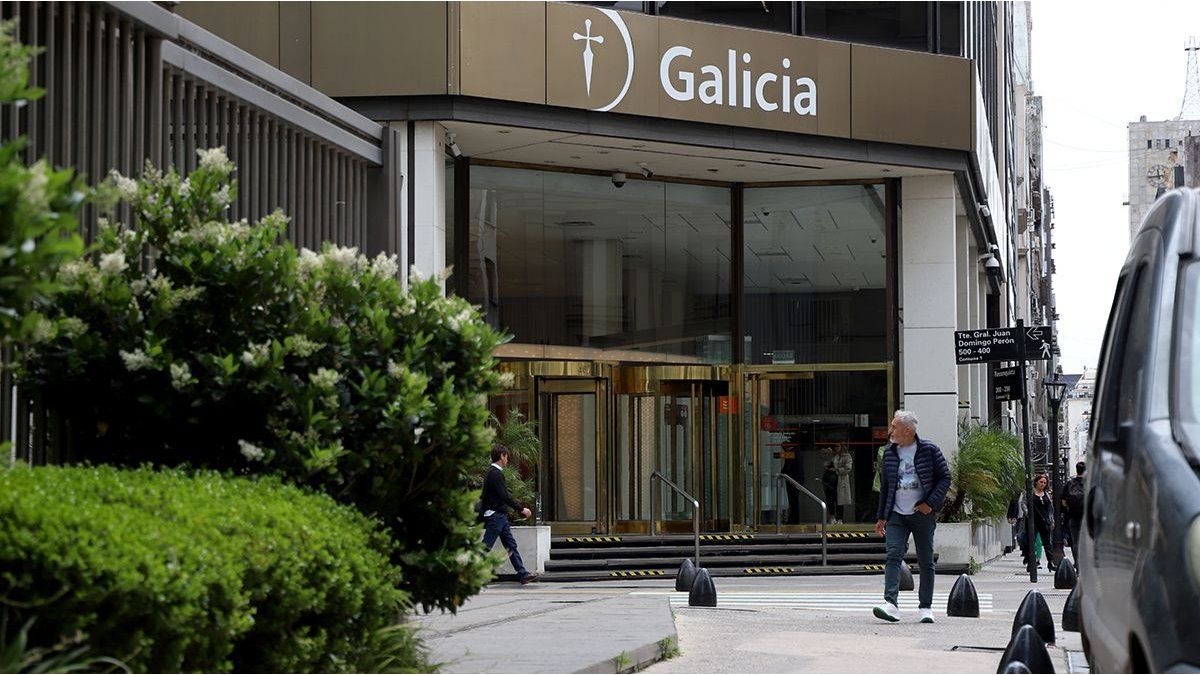Through an official communication, the Galicia Financial Group offered to voluntarily pay the penalty imposed by the National Securities Commission (CNV) for an amount of $28,837 million after the regulator initiated an investigation into unfair use of the Central Bank’s (BCRA) “puts.”
“I’m heading to that National Value Comission (the CNV) for the purpose of informing that on the current day the BCRA debited the sum of $28,837,892,152.80 from the current account of Banco de Galicia as acceptance of a proposal made by the Central Bank voluntarily offering comprehensive reparation for the alleged damage that the BCRA claims to have suffered as a consequence of the exercise of “a liquidity option by the Bank in the month of February 2024” and without including possible sanctions derived from BCRA regulations.
“Such an offer was made with the purpose of restoring the trust historically built by Banco Galicia with the BCRA, throughout its extensive history, as well as repairing its reputation and that of its related companies and of the individuals investigated by that Commission, which was affected by the public dissemination of the case. The aforementioned proposal was made without recognizing any facts or rights linked to the circumstances subject to investigation by the CNV,” says the statement from Galicia.
The antecedent
The regulator opened an investigation into one of the operations it observed as suspicious carried out last February. It would be what is called wash trade (artificial transactions) in the management of debt bonds. With the move, Galicia would have earned more than $23 billion.
The CNV’s accusation started with a notification from the Central Bank for questionable maneuvers with public debt securities by Galicia to artificially inflate their price (wash trade) and then collect insurance (puts) guaranteed by the Central Bank, according to the summary opened by the market regulatory body.
Galicia became aware of the investigation late Tuesday. Following this it began “an internal investigation to analyze the questioned operations and control processes and will respond to the CNV within the established timeframes.”
From the bank, at that time, they acknowledged when asked Ambit that “the CNV is investigating a possible regulatory infringement due to the exercise of a put by Banco Galicia against the BCRA, at a price that would have been higher than that which would have corresponded without considering some transactions carried out by the related companies.”
Why is Banco Galicia being investigated?
“Various bond issues carried out by the Treasury gave the participating banks the possibility of buying puts, which grants the right to sell said bonds to the BCRA as a liquidity option. Although the Bank exercised several puts within the normal course of business, the price at which the put was exercised on the aforementioned date is being investigated in particular,” a CNV statement then cited.
The investigation targeted a set of market operations carried out by Banco Galicia with the dual bond maturing in January 2025 (TDE25). Specifically, the CNV is examining a transaction carried out on February 19. Two minutes before the market closed, the CNV detected a very high volume of transactions in that bond on the MAE wholesale market.
According to the CNV, this dynamic was repeated on February 20, with a higher than usual amount traded for the same bond, which led to an increase in its price on the market.
The next day, the Galicia Bank specified its “liquidity option” (put, in financial jargon), a resource that the BCRA enabled for certain bonds that it guarantees to the entities the possibility of collecting, before maturity, the value in pesos of these debt instruments.
“The expansive monetary effect, as a consequence of this execution, was $112,794 million, $23,072 million higher than that resulting from having been exercised at the extrapolated price,” says the CNV investigation.
“The operations carried out in the type TDE25 dated 02/19/2024 and 02/20/2024 denote the intervention of said companies belonging to the same Financial Group, with the same being arranged between one or another company of the Group as counterparty,” says the accusation, which points against Banco Galicia, Galicia Securities and Inviu – three firms controlled by the Group. At the same time, he adds that “said practice could be framed in that recognized by doctrine as wash trade or “washed negotiation”.
Specifically, the CNV investigated whether these operations between companies in the same group were aimed at artificially increasing the value of the assets, in order to obtain a greater profit from the execution of the puts.
Source: Ambito
I am a 24-year-old writer and journalist who has been working in the news industry for the past two years. I write primarily about market news, so if you’re looking for insights into what’s going on in the stock market or economic indicators, you’ve come to the right place. I also dabble in writing articles on lifestyle trends and pop culture news.




